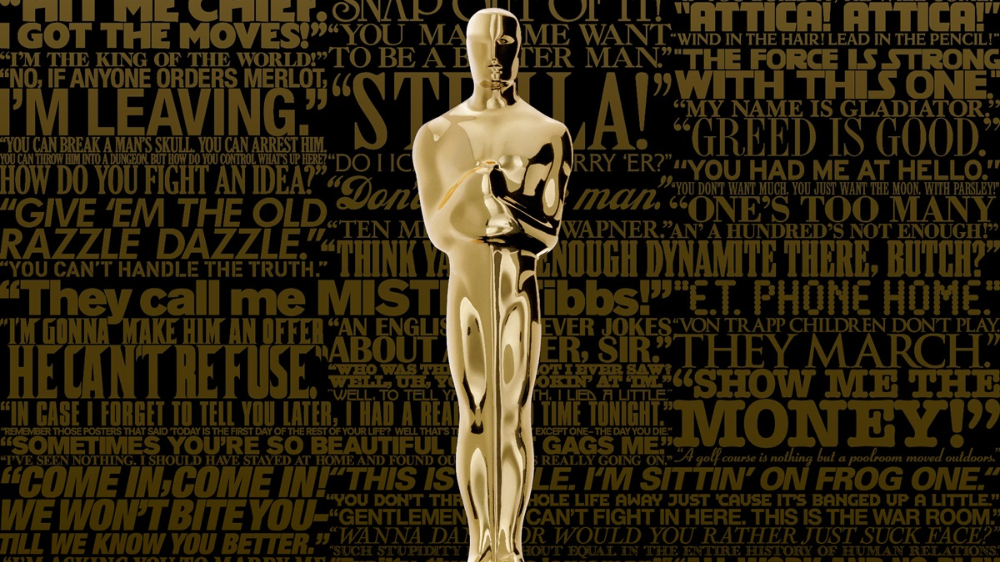
We have been firmly ensconced in Oscar Season for a few weeks now, and if there was any doubt about that, the controversy that erupted over which awards would and would not be given out during the live telecast hammered it home. Because it wouldn’t be Oscar season if there wasn’t some kind of kerfuffle about the ceremony itself, its length, the categories included, how to fix it, and on and on.
The Oscars aren’t going sans host again, which is a step in the right direction, but the bigger story is that in an effort to tighten up the bloated awards show, the decision was made to pre-tape eight categories an hour before the actual show, announce the winners on social media, and edit the footage into the telecast as if they were happening live.
It seems to have worked pretty well for the Tony Awards.
Of course, the Oscars may reach a larger audience than the Tonys, but that audience is still appreciably smaller than it used to be, and that’s part of the reason why this change was made — because the Academy finds itself under pressure to deliver bigger ratings.
Unfortunately, the Academy is attacking a structural issue with its house by simply changing the drapes — a fine short-term solution, perhaps, but the underlying problem is something that has to be addressed sooner rather than later. Before I get into that, let’s wade into the controversy and the predictable revolt from several guilds whose members were left slighted by the Academy’s decision.
For the record, the eight categories listed as being bumped off the live telecast are Documentary Short, Film Editing, Makeup/Hairstyling, Original Score, Production Design, Animated Short, Live-Action Short and Sound. It should come as no surprise to anyone that the three short-form categories are on the list, since they’re always at the top of every list that involves shortening the show, no pun intended. The others are curious in that it feels like they were pulled out of a hat, as it’s otherwise unclear how these selections were made. Why Production Design and not Costume Design? Why Editing and not Cinematography? Why Original Score and not Original Song?
Allow me to try and explain. It’s because it’s not only easier for Hollywood to showcase costumes and cinematography than it is to replicate the scale and intimacy of certain movie sets or explain the ins and outs of its editing, which by its very nature is supposed to be invisible, but also because those are easier crafts for the audience to fully understand and appreciate as well. As for the third one, that decision makes sense, as you can’t give out the award for Best Original Song an hour before the show and then expect the four Oscar nominees who lost to perform those songs during the telecast knowing their fate has already been sealed.

The vocal protests from representatives of the affected categories were rather loud, as one can imagine. Just the other day, there was a heated exchange between AMPAS CEO Dawn Hudson, President David Rubin, VP and Awards Chair Jennifer Todd, and members of the Sound community, who considered the change “insulting and disrespectful.” The Set Decorators Guild likewise came out with a scathing response on Monday, while Nelson Coates, the President of the Art Directors Guild, had a more muted reaction last week, saying, “We support the Academy’s commitment to identify all nominees on-air and feature all winners’ acceptance speeches on the live broadcast.”
The Academy tried this once before, three years ago, when it announced that four categories would be presented during commercial breaks and then dropped into the show later. That response was likewise loud and negative, and the Academy did an immediate 180 on it, acknowledging in the process that all categories matter. Those categories, interestingly, were Cinematography, Film Editing, Live-Action Short, and Makeup/Hairstyling. Make of that overlap what you will.
Before the Academy backtracked, the plan had been to start with those four categories, and then rotate four other categories through in 2020, and four others the year after, and so on. The hue and cry from Academy members put the kibosh on that, but it doesn’t appear that any kind of rending of hair and gnashing of teeth will do the trick this time around, as AMPAS intends to hold the line.
For what it’s worth, I think this is sort of long overdue. I’ve been writing about this in one form or another for years, and one of my suggestions about improving the show has always involved reducing the number of categories on the live telecast. Currently, it’s at 23. It was 24, but last year the Academy combined Sound Effects and Sound Editing into one award for Best Sound, so the Sound guys were already pretty peeved. Personally, I would add Casting and Stunts to the list, but that also goes into my larger plan, which would turn it into a whole Oscar Weekend, with events Friday and Saturday night, as well as the Main Event on Sunday, and that feels like off-topic fodder for a different column.
Look, whenever you take something away from someone, chances are they’re going to protest about it. The Sound, Editing, and Makeup and Hairstyling people have every right to voice their displeasure about getting their awards before the show starts and having their speeches edited into the telecast, but if the point is to be recognized along with everyone else, that’s still very much the Academy’s plan. The difference is that a winner’s walk to the stage might not be shown to everyone, and I think I can speak for most people when I say that I’m pretty much fine with that.
The length of the show is almost always an issue, and tightening the broadcast in any way, shape, or form is a good thing. But as noted above, that’s really only part of the problem, and I think the Academy really needs to take a step off its soapbox of snobbery to fix the other one.

Last year’s ratings were awful, sure, but that had at least something to do with the circumstances. I fully expect the ratings to be higher this year, but not much, as low ratings for awards shows have become a pattern, particularly with the Oscars. Since 2014, each show has had fewer viewers than the last, with one exception: 2019. Would you like to guess which movie won three Oscars that night in addition to being nominated for Best Picture?
If you said Black Panther, you nailed it, and that’s the issue. The Academy has gotten too self-conscious for its own good, ignoring the popular fare it used to honor and recognizing smaller and smaller movies instead. Not that the smaller movies don’t deserve the recognition, because some do and some don’t, but the rejection of popcorn fare the past few years has turned off a whole lot of fans. I guarantee you that if Spider-Man: No Way Home had been nominated for Best Picture — an honor it totally deserved — the ratings would have earned a boost and the Academy wouldn’t have to twist itself into knots finding other solutions. But the Academy ignores movies like that now, and has for a while, to its own detriment.
This backlash, from both the guilds and Oscar fans, was swift and certainly predictable, but the Academy should stick to its guns. Its members should also lighten up about how they judge movies, stop looking down at the Spider-Mans and Mission: Impossibles of the world, and start recognizing blockbusters as the great filmmaking achievements they are, for those are the films that unite cultures around the world and help keep the industry afloat.
The Academy knows that changes need to be made to the Oscars telecast, and we can’t keep knocking the org every time it tries something different. Change is hard, and it takes time, but if the Academy sits on its hands and does nothing, the Oscars are destined to fade into obscurity, and that can’t be allowed to happen. The Academy simply needs to be a little more inclusive, not just in terms of its membership, but in terms of the kinds of movies its members take seriously enough to nominate. The Oscars’ ratings problem isn’t about the host, or the length of the show, it’s about the movies. The Academy may be a little lost at the moment, but there is a “way home,” the org just needs to find it.
 Neil Turitz is a journalist, essayist, author, and filmmaker who has worked in and written about Hollywood for nearly 25 years, though he has never lived there. These days, he splits his time between New York City and the Berkshires. He’s not on Twitter, but you can find him on Instagram @6wordreviews.
Neil Turitz is a journalist, essayist, author, and filmmaker who has worked in and written about Hollywood for nearly 25 years, though he has never lived there. These days, he splits his time between New York City and the Berkshires. He’s not on Twitter, but you can find him on Instagram @6wordreviews.
You can read a new installation of The Accidental Turitz every Wednesday, and all previous columns can be found here.





